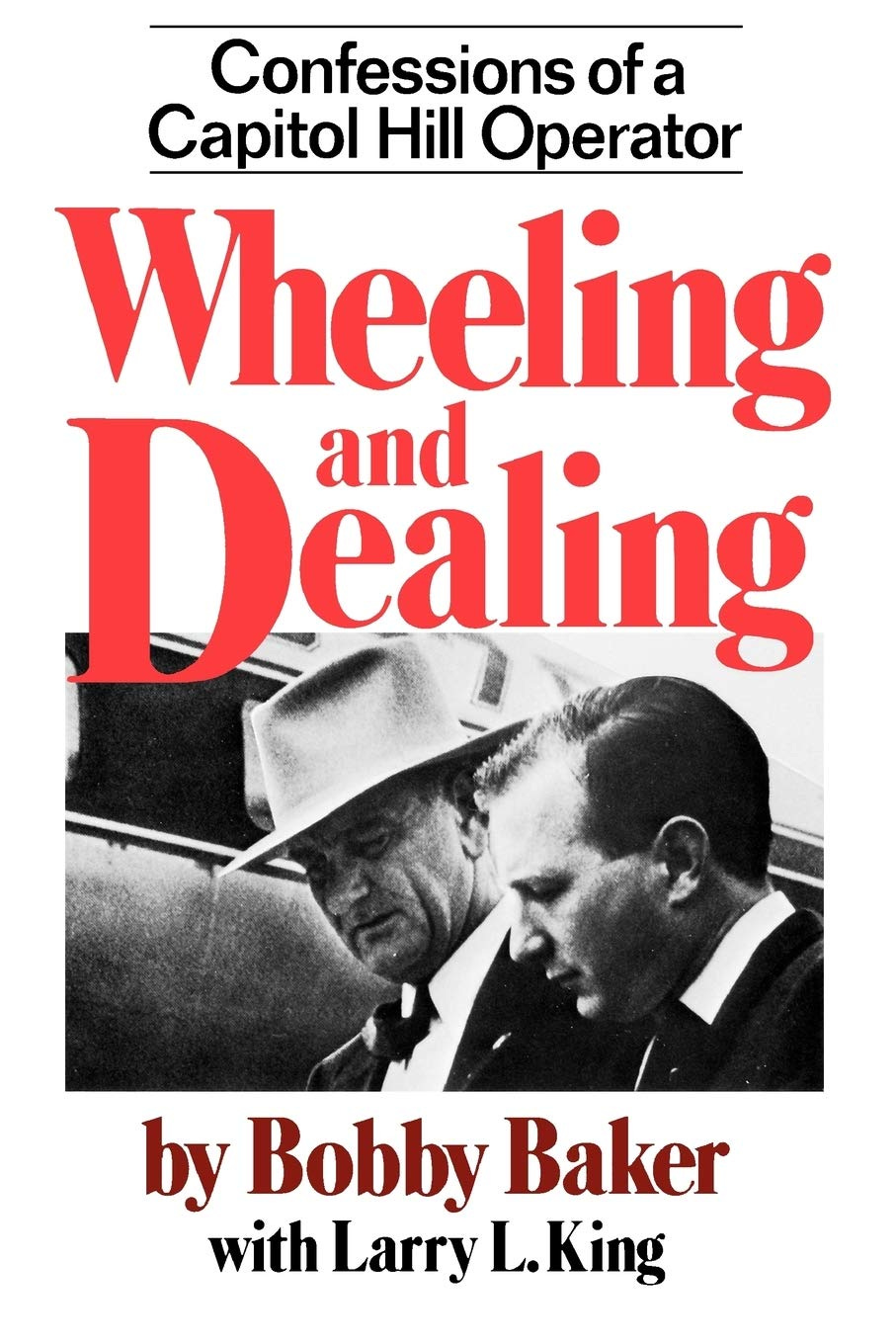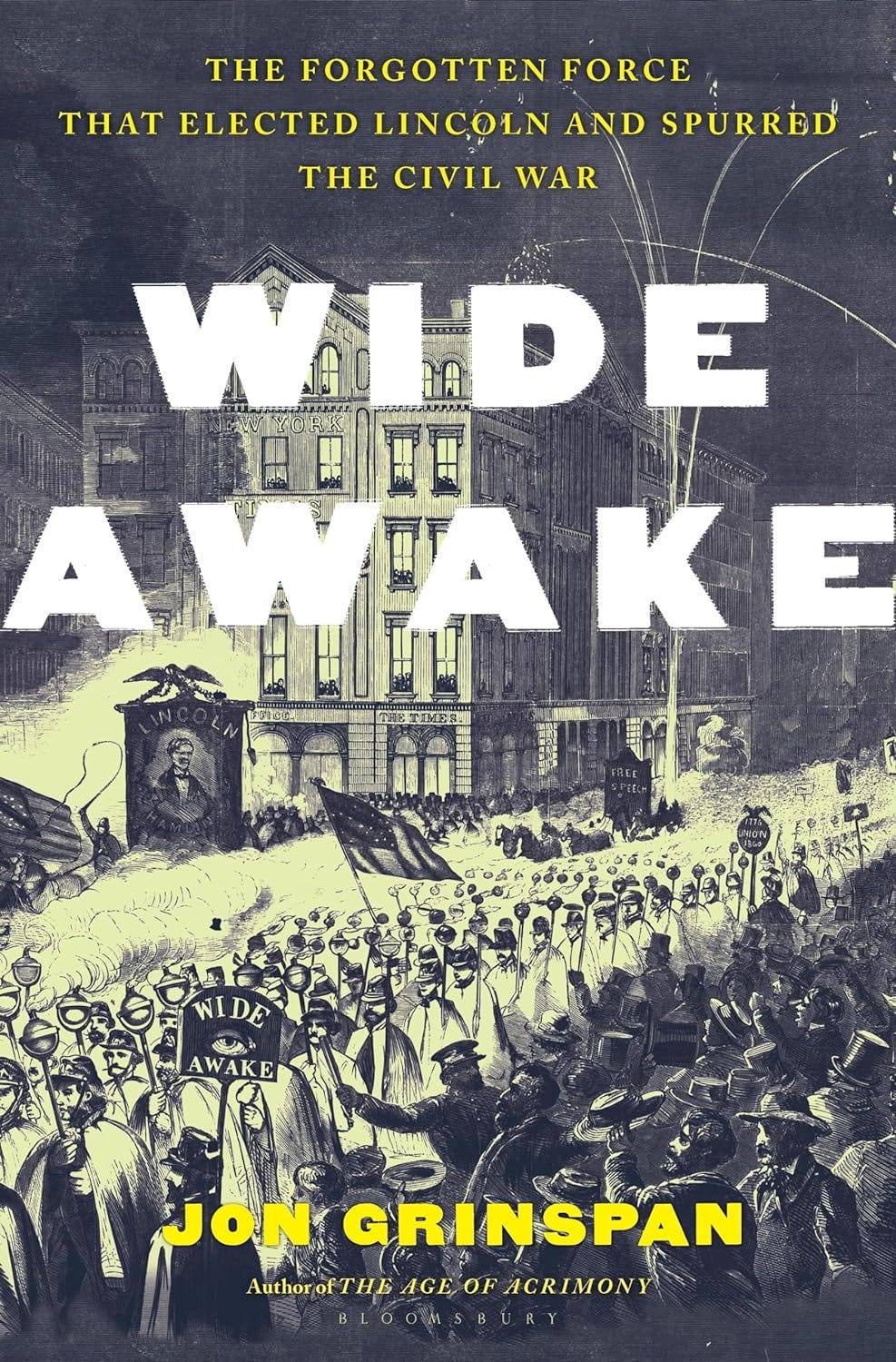A brief note on the bad old days in Congress
And a review of a new book on the crazy politics on the mid-19th century
The bad old days
Whenever I hear folks gripe that Congress is corrupt, I tell them that today’s legislators are far cleaner than their forebears. Just read this yarn on The Memory Hole Substack about the bribery that went on. Some of this essay focuses on Rep. Fernand St Germain (D-RI), who made big bucks from real estate deals while an elected official.
In 1971, St Germain approached an old friend, Roland Ferland, a real estate developer, asking to be cut in on future deals: “If something comes along, I hope you’ll consider me.” An opportunity came along in the form of a 192-apartment building in East Providence, Rhode Island. St Germain was the only non-member of Ferland’s family brought into the deal, which amounted to a $3,000 ($23,000 today) investment for a 15% share of the partnership. He cashed in most of his share for $184,798.90 in 1980; all told the deal earned him $192,000 ($550,000 today) by 1986.
Another land deal from Ferland in 1976 located in Pawtucket earned him $176,250 ($500,000 today) in ten years, off an initial investment of $7,500 ($41,000 today). In return, St Germain supported housing subsidies for Rhode Island in the Banking Committee. The real estate developer in turn profited, Ferland becoming one of the largest managers of subsidized housing in the Northeast. A further land deal offered by Ferland, involving a 20% stake for St Germain in School Street Associates purchased in 1975, made St Germain less money, only $18,000 ($52,500 today) in profit when it was sold in 1985. “This finally concludes one of our less profitable partnerships,” Ferland wrote when sending St Germain a check. “I guess we can’t have all winners.” Without noting the conflict of interest, chairman St Germain of a banking subcommittee overseeing financial institutions invited Ferland to testify regarding proposed legislation before the subcommittee in 1978 and again in 1980.
Or is you want to really dig into the filth, read Wheeling and Dealing on Capitol Hill (W.W. Norton, 1978), the memoir written by Bobby Baker about the sleaziness of the Senate in the 1960s. Or you can eyeball the interview with Baker done by the Senate Historian in 2009 and 2010.
John Fitzgerald Kennedy once called Baker “the 101st senator.” That is how powerful he was to the chamber’s operations. Baker was a Senate aide who on a salary of less than $20,000 per year became a millionaire, a wheeler-dealer who ran a brothel for legislators on Capitol Hill.
Drunkenness and sexual harassment were common among legislators, and corruption was endemic. Here are two excerpts from the 231-page interview transcript:
“Baker explained the method used by Walter Reuther, the longtime head of the United Autoworkers Union, to get cash to senators at a time when unions were barred from making political contributions. [Baker stated:] ‘He had to be very careful with cash money that came to his union in the United States. But he had no such rule in Canada. So as a consequence, Walter Reuther, probably because of his cash contributions, had a minimum of 20 senators that would vote any way he wanted. … He bought more United States Senate seats than anybody in my life. I’m telling you, it was unreal for Senator Ted Moss [D-Utah] or Gale McGee [D- Wyo.], coming from basically Republican territory, to get elected. Because Walter Reuther gave money. But boy, when I needed to get them to help on a vote, if Walter Reuther called them, I could never change them.'”
“[Baker reports:] ‘“I was always very fond of Senator Tommy Kuchel [D-Calif.]. He was a fun guy. … Kuchel was having a relationship with his secretary, so he’d come over to me and ask me if I could send a page boy to buy him some rubbers—true story!”
Congressional Camelot it was not. Today’s legislators, who live under far more scrutiny and transparency, are amateurs compared to guys like St. Germain and Lyndon Johnson.
The Washington Free Beacon has published my review of Jon Grinspan’s latest book. The Wide Awakes were a movement born in Connecticut shortly before the 1860 election. They were not a group with a clear policy platform. They were more a movement created by bored young men who were opposed to Democrats and their mobocratic, slavery-defending behaviors.
The Wide Awakes tested the bounds between politics and militarism: they drilled in military marches, wore black capes, carried torches, and belted out “Huzzahs!” They were, in some respects, like the Proud Boys or any of the many other political groups left and right that have bubbled up over the past couple of centuries and that had an uneasy relationship with the political parties. Grinspan’s Wide Awake, like his The Age of Acrimony (Bloomsbury, 2021), is a well worth your time.
You can read my full review here.






Great post; I have so many stories of my own. But anytime someone reads about, say, the conviction of a US Senator for taking bribes, they think they “all do it.” The stock-trading habits of Members also looks very bad and desperately needs changing.
Kevin, I loved this article, but I'm also blown away by the breadth and depth of your inquiries into the dusty attics of American political history, where so many good stories are waiting to be discovered--by first-rate journalists like you.